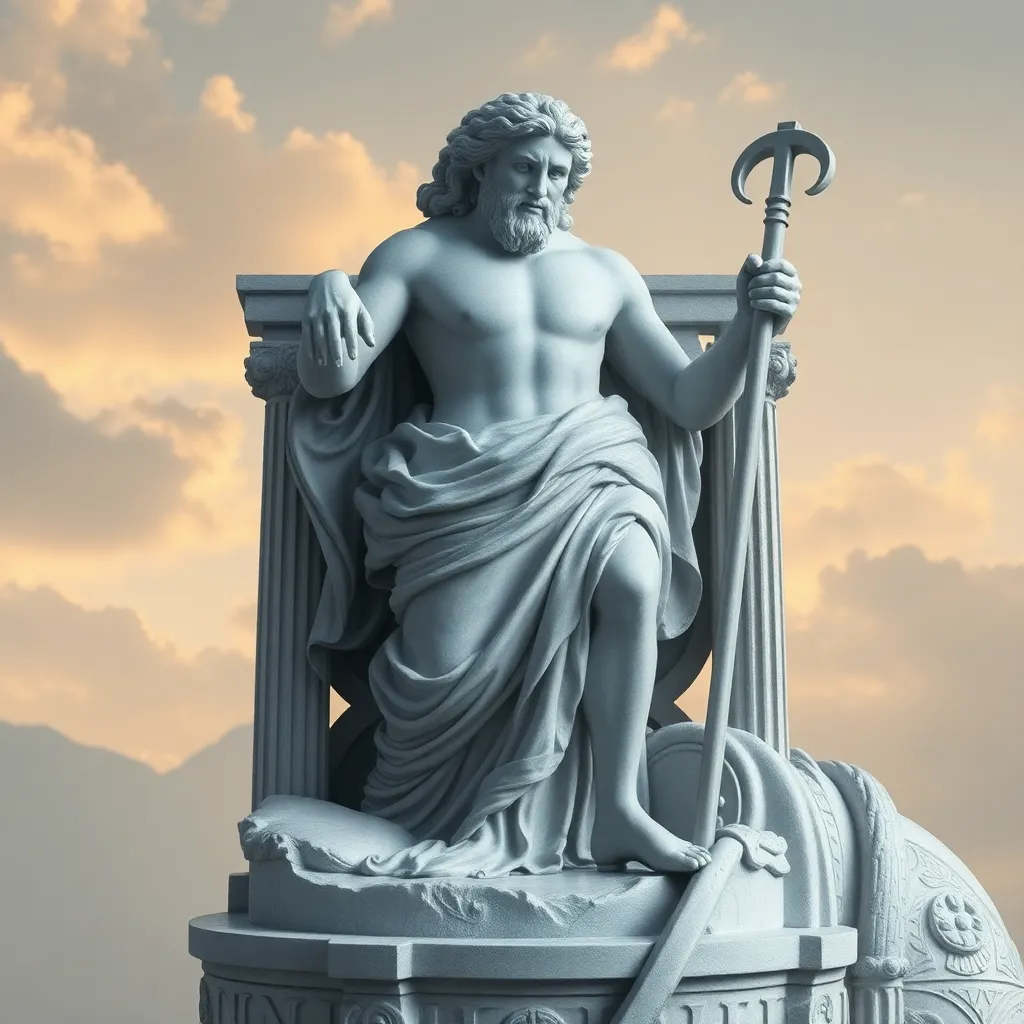The Role of Apollo in the Myths of Theseus: A Divine Guide
I. Introduction
Theseus is one of the most celebrated heroes in Greek mythology, known for his incredible feats and adventures that shaped the cultural identity of Athens. His legend is woven into the fabric of the city, representing the values of courage, intelligence, and determination. A pivotal figure in this mythological tapestry is Apollo, the god of light, music, and prophecy. This article explores the significant role that Apollo plays as a divine guide in the myths surrounding Theseus, illuminating the importance of divine intervention in the hero’s journey.
II. The Character of Theseus: A Hero of Athens
Theseus is often regarded as a quintessential hero, embodying the ideals of ancient Athenian society. His adventures are numerous and varied, each contributing to his legacy and the collective memory of Athens. Some of his key feats include:
- Defeating the Minotaur in the labyrinth of Crete.
- Slaying bandits along the journey to Athens, such as Procrustes and Sinis.
- Participating in the Argonauts’ quest for the Golden Fleece.
- Establishing democratic principles in Athens.
Theseus’ connection to Athens is profound; he is often seen as a symbol of the city’s strength and unity. His adventures not only highlight his personal bravery but also reflect the cultural identity of Athens as a center of civilization and democracy. Divine intervention plays a crucial role in these hero myths, often guiding and influencing the outcomes of their quests.
III. Apollo: The Multifaceted God
Apollo is one of the most complex deities in the Greek pantheon, associated with various domains, including:
- Light and the sun
- Prophecy and oracles
- Music and arts
- Healing and medicine
As a god of light, Apollo represents knowledge, clarity, and enlightenment. His role in the pantheon is essential, often acting as a mediator between the divine and human realms. Apollo’s influence on mortal affairs is significant, particularly concerning heroes like Theseus, where his guidance shapes their destinies.
IV. Apollo’s Guidance in Theseus’ Journey
Throughout Theseus’ journey, Apollo’s guidance manifests in various ways. One notable example is the prophecy that foretells Theseus’ rise to prominence and the challenges he must face. This prophecy serves as a compass for Theseus, directing his actions and decisions. Key moments where Apollo provides guidance include:
- Encouraging Theseus to confront the Minotaur, leading to his greatest victory.
- Offering support during his trials on the way to Athens, ensuring his safe passage.
- Providing oracles that help Theseus make crucial decisions, such as his return journey from Crete.
The significance of oracles and divine messages in Theseus’ narrative cannot be overstated; they underscore the belief that fate and divine will are intricately linked in Greek mythology.
V. Symbolic Representations of Apollo in Theseus’ Myths
Apollo’s symbolism is rich and multifaceted, particularly in relation to Theseus. The symbolism of light and knowledge associated with Apollo often reflects Theseus’ growth as a hero. Artistic and literary depictions showcase this connection:
- In sculptures, Apollo is often portrayed as a youthful figure, embodying the ideal of beauty and intellect.
- In literature, Apollo’s guidance is depicted as a source of inspiration and clarity for Theseus during his darkest moments.
The relationship between Apollo’s qualities and Theseus’ character development highlights the transformative power of divine influence, emphasizing that the hero’s journey is as much about internal growth as it is about external challenges.
VI. The Interplay of Fate and Free Will
The narrative of Theseus encapsulates the balance between divine guidance and personal choice. While Apollo’s interventions are crucial in shaping Theseus’ destiny, the hero also exercises free will in his decisions. This interplay raises philosophical questions about fate and agency in Greek mythology:
- How much of Theseus’ success can be attributed to Apollo’s guidance versus his own decisions?
- What does it mean for a hero to receive divine support while navigating their fate?
Apollo’s interventions undoubtedly shape the course of Theseus’ life, but they also serve to highlight the importance of personal choice in heroism. Theseus exemplifies the idea that while fate may lay the path, it is the hero who must walk it.
VII. Comparative Analysis: Apollo and Other Divine Guides
Apollo is not the only deity who acts as a guide for heroes in Greek mythology. Other notable gods include Athena, known for her wisdom, and Hermes, the messenger god. A comparison of these divine figures reveals unique aspects of Apollo’s guidance in Theseus’ story:
- Athena often provides strategic counsel, emphasizing wisdom in battle.
- Hermes facilitates journeys, representing swiftness and cunning.
In contrast, Apollo’s guidance is characterized by a focus on prophecy and enlightenment, encouraging Theseus to pursue knowledge and truth. This highlights the broader significance of divine guidance in mythological narratives, where each god offers distinct forms of support to heroes.
VIII. Conclusion
In conclusion, Apollo’s role in shaping Theseus’ journey is profound and multifaceted. As a divine guide, Apollo influences Theseus’ decisions, providing wisdom and support that propel him toward his destiny. The relationship between the hero and the god illustrates the lasting impact of divine figures in Greek mythology, emphasizing the intricate connections between fate, free will, and the hero’s journey. Ultimately, the myths of Theseus and Apollo invite reflection on the nature of heroism and the guiding forces that shape our lives.




